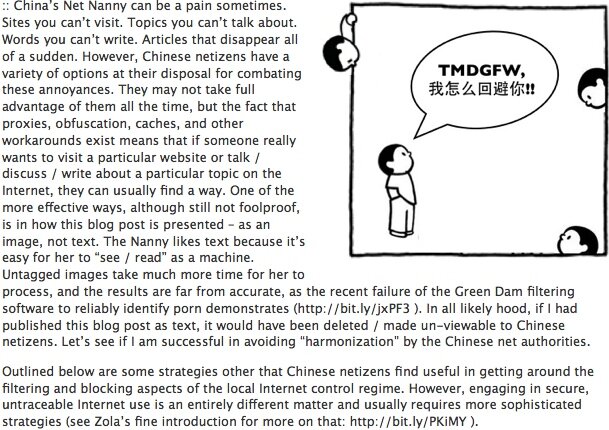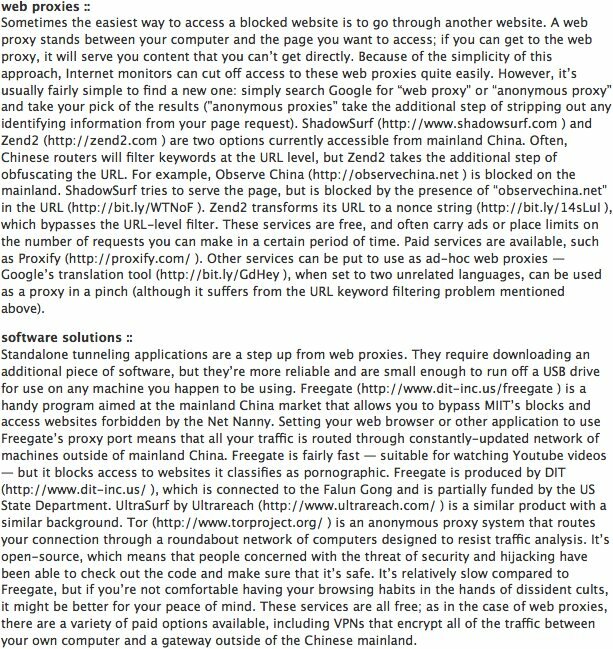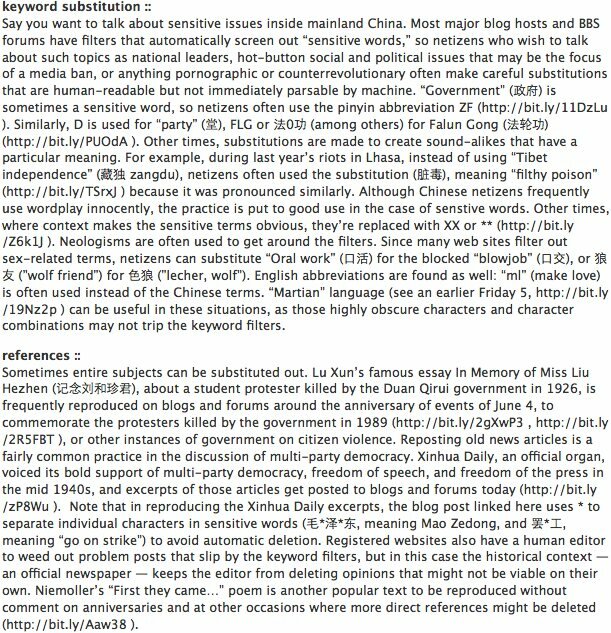:: here are five more examples of the fascinating Chinese Internet slang and memes that today’s local netizens are all about. This installment ranges from memes inspired by government-speak (“pressure difference”) and the depressed economy (“to be found a job”), to imports from Korea and Japan. Two examples trace the progress of a meme from its use as an inconsequential piece of Internet fluff to its roll in larger commercial or charitable endeavors.
brother chun / brother zeng (春哥 / 曾哥) ::
Li Yuchun and Zeng Yike, both tomboyish Super Girl stars whose androgynous style is a key factor contributing to their popularity. When Li won the competition back in 2005, she appealed to many female fans because she seemed like a liberator who cast off social constraints, and she gave confidence to women who fell short of the cultural ideal. On the other hand, there are those who think “she looks like a man.” The Brother Chun meme is due to this second group. The initial catchphrase was “Brother Chun is All Man, A Real Iron-man” (春哥纯爷们, 铁血真汉子) and sparked an online explosion of photoshopped images that combined Li’s head and men’s bodies. It soon transformed into a parody cult, with Li’s head ’shopped onto the bodies of the icons of various religions, all captioned with “Believe in Chun brother and live forever” (信春哥,得永生) Since then, there have been other variations in a more materialistic vein: “Believe in Chun brother and you will not fail your exams (新春哥,不挂科), and “Believe in Chun brother and make a fortune” (信春哥,发大财).With an Internet culture in China that seems able to turn everything into entertainment, these memes spread quite fast and also extended their influence to the offline world. “All man” (纯爷们) or even just 纯 (pure) has gone on to be a general reference to “male quality” with a humorous undertone (the term was notably used by mincing comedian Xiao Shenyang at this year’s Spring Festival Gala, the biggest annual mainstream media / entertainment event in China). Brother Chun even has been exploited for commercial gain: an expansion released in June for the Chinese edition of the video game MapleStory (冒险岛:骑士团的逆袭), run by Shanda, echoed the meme in its advertising: “Help Brother Chun: Exterminate the Spring Dove and Gain Eternal Life” (助春哥,灭春鸽,得永生). Zeng Yike had her own set of fans and slightly obsessed anti-fans who copied the Brother Chun phenomenon wholesale – “Brother Zeng,” male body photoshops (particularly Stallone), slogans, a parody cult, and an ugly undercurrent of misogyny.
jia junpeng, postcards, & loneliness (贾君鹏 / 明信片 / 寂寞) ::
On July 16 a post appeared on the Baidu World of Warcraft Postbar (魔兽贴吧) that read simply, “Jia Junpeng, your mom wants you to go home for dinner” (贾君鹏你妈妈喊你回家吃饭). The short post – nothing more than the title, and no clue as to the identity of Jia Junpeng – highlighted the intensity of gaming culture on the Chinese Internet: eating and sleeping in web cafes without going home to eat. By the end of the day the postreportedly had more than 4 million views and 300,000 comments. A Beijing-based media company later claimed that the phrase was a viral marketing ploy, although there are other competing theories as to its origins. Jia himself was never found (see ChinaHush for more). Like other memes, Jia Junpeng has been Photoshopped extensively: Saddam Hussein, films stills, and comics, among other settings (see chinaSMACK for more images). It was also harnessed for other causes: “Taiwan, your motherland wants you to come home for dinner”). The Jia Junpeng meme, with its mention of “dinner” and a reference to the non-loneliness of being with family, was a natural complement for an earlier WoW meme, “Brother’s not eating dinner, I’m eating loneliness” (哥吃的不是面, 是寂寞), which appeared accompanied by a picture of a young man and a bowl of noodles after WoW suspended operations on June 7. Without a game to play, online groups sprang up: the “Loneliness Group” (寂寞派) and the Loneliness (Political) Party (寂寞党), and the catchphrase structure gave rise to many variations, such as “I’m not posting a post, I’m posting loneliness” (我发的不是帖子, 是寂寞). Jia Junpeng took on another dimension when the Amoiist, a blogger from Xiamen, was detained by police in July 2009 for posting an appeal video about a rape and murder. After his arrest, other netizens got involved to save the blogger, whose real name was Guo Baofeng (郭宝峰). They twittered “Guo Baofeng, your mum wants you to go home for dinner” in Chinese and English, and organized a drive to send postcards bearing that message to the Mawei prison where Guo was being held. He was eventually released, and whether or not the postcards had anything to do with it, the campaign captured the attention of the major mainstream media (See The Time Weekly 时代周报). And both Jia Junpeng and loneliness have been appropriated as t-shirt slogans. Mengtoy, a T-Shirt and plush toy company with a shop on Taobao.com, features t-shirts bearing the slogan “WoW: your mom wants you to go home for dinner,” and “MoM: I’m not eating dinner, I’m eating loneliness,” cleverly inverting the WoW into MoM.
passive actions: 被 ::
被 (bèi) is a passive marker in Chinese language, but when it’s used with verbs that aren’t normally thought of in passive terms, it represents futility in the face of external circumstances beyond your own control. It’s a familiar linguistics structure – remember back to last May when donations were being solicited for the Wenchuan Earthquake recovery effort, and 被捐款 (bèi juānkuǎn), “to be donated”, indicated that a “voluntary” contribution was automatically (sometimes unwillingly) deducted from many people’s salary. But involuntary donations apparently take place all the time, and they’ve been on the rise following the damage wrought on Taiwan by typhoon Morakot. This June, recent graduates exposed a dodgy strategy that some colleges use to inflate their successful employment statistics: they require students to provide proof of employment before they can obtain a diploma, or they cook up fake employment contracts and recruit graduates into non-existent jobs. The term 就业 (jiùyè) means “to find a job”; made passive, 被就业 (bèi jiùyè) indicates that the job-seeker finds themselves with an employment contract without actually having any of the benefits or responsibilities that come with a job: work and a salary, for example. In July, 被增长 (bèi zēngzhǎng, “to be increased”) hit the net. 增长 (zēngzhǎng), means “gain”, and is used to describe economic gains, increases in satisfaction rates, and other rising trends. When it’s applied passively, “to have been increased” indicates that someone is part of a statistical group whose numbers have risen without any actual gains being made. (This happens more than frequently in China.) The term seems to stem from a blog post made by commentator Xia Yucai, who wrote “My income has ‘been increased’ by the State Statistics Bureau” (我的收入在国家统计局那里“被增长”了). Finally, in late July and early August, 全勤 (quán qín), “perfect attendance,” has also been taken passive, 被全勤 (bèi quánqín, “to be perfect attendanced”), to describe workers who don’t take any vacation, not of their own volition, but because they are unable to take time off. Originally an isolated observation, the term took off in popularity because “perfect attendanced” workers form a significant group online. The question “Little white-collar, have you been ‘perfect attendanced’ today?” notes the demographic group affected by “perfect attendance” and many of the other passive memes.
Korean and Japanese affectations ::
思密达 (sīmìdá, also 斯米达) is a Chinese transliteration of a Korean honorific (하십니다) that is used as a sentence-ending particle in net-speak. It invaded Tianya’s Entertainment Gossip boards in 2008, to the point that people made posts asking people to please knock it off, and it’s spread across the net since then. There’s an undercurrent of anti-Korean sentiment to its use in some contexts (online jokester Chun Baba has the line “Everything belongs to Korea simida” 什么都是韩国的思密达), but it’s also used generally as a mark of sarcasm, or even simply a cute affectation that flies over the heads of many ordinary netizens. What’s particularly amusing about the mystery surrounding 思密达 is that when it shows up in the title of a web page (which pushes it to the top of search engine results), it’s most likely being used as the transliteration of Smecta, a diarrhea remedy for young children, so casual netizens who run across the term in forums remain in the dark, unless they take advantage of one of the many Ask sites, where the term is defined quite widely. There’s something similar going on for the Japanese sentence ending particle です, which has been taken into Chinese as 的说, most likely through soaps imported from Taiwan. It’s much less tied to Japan than “simida” is to Korea, and is mainly used as a cutesy, exclamatory sentence ending word. There’s a contentious Baidu Postbar devoted to the term where enthusiasts and denigrators fight it out through the use of other contemporary memes. And then there’s the meta-commentary: “The word desu was invented by the Koreans simida” (“的说”这个词是寒国人发明的思密达).
pressure difference: the Shanghai building collapse ::
On June 27, a 13-storey building in the Lotus Riverside development in Shanghai toppled over due to poorly-planned excavations for an underground parking garage. The building remained in one piece, and photos of the accident captured the attention of China’s netizens. Just as they had with the CCTV fire in February, netizens reimagined the scene in a series of Photoshops showing a Transformer attack, a number of Ultraman battles, and various other destructive events, including a visit from Brother Chun. The term 楼脆脆, “fragile building”, was the popular term used to describe the fallen structure. Just this month a building in Chengdu was discovered to have leaned sideways so the top was resting against the building next door, and it was given a similar name: 楼歪歪, “leaning building.” The official explanation for the Shanghai collapse employed the term “pressure difference” (压力差) to describe how the building was pushed over. The term was first mocked for seeming to indicate that the building itself was problem free (“blame it on the pressure difference”) and it now has been adopted for use in other areas of pressure (not just the physical ones of ground on building): A thread titled “India, be careful of ‘pressure difference’” was posted on Sohu’s military forums (印度,请小心“压力差”), and netizens have mixed the term with last year’s “Have you gone out for soy sauce today?” (今天你打酱油了吗) to create “Have you had pressure difference today?” (今天你压力差了吗?).
// AjS
[Friday 5 is the product of my work at Edelman Digital (China). Link here for the full Friday 5 archive. If you'd like to be added to the bilingual (English & Chinese) Friday 5 email distribution list, please send me an email at: adam DOT schokora AT edelman DOT com.]




 :: the topic for this week’s Friday 5 comes from my colleague (and former United States Ambassador to Singapore, 2001 – 05) Frank Lavin, based in Edelman’s Hong Kong office. Thanks Frank. If any readers have any ideas for future Friday 5s, please send through.
:: the topic for this week’s Friday 5 comes from my colleague (and former United States Ambassador to Singapore, 2001 – 05) Frank Lavin, based in Edelman’s Hong Kong office. Thanks Frank. If any readers have any ideas for future Friday 5s, please send through.






























